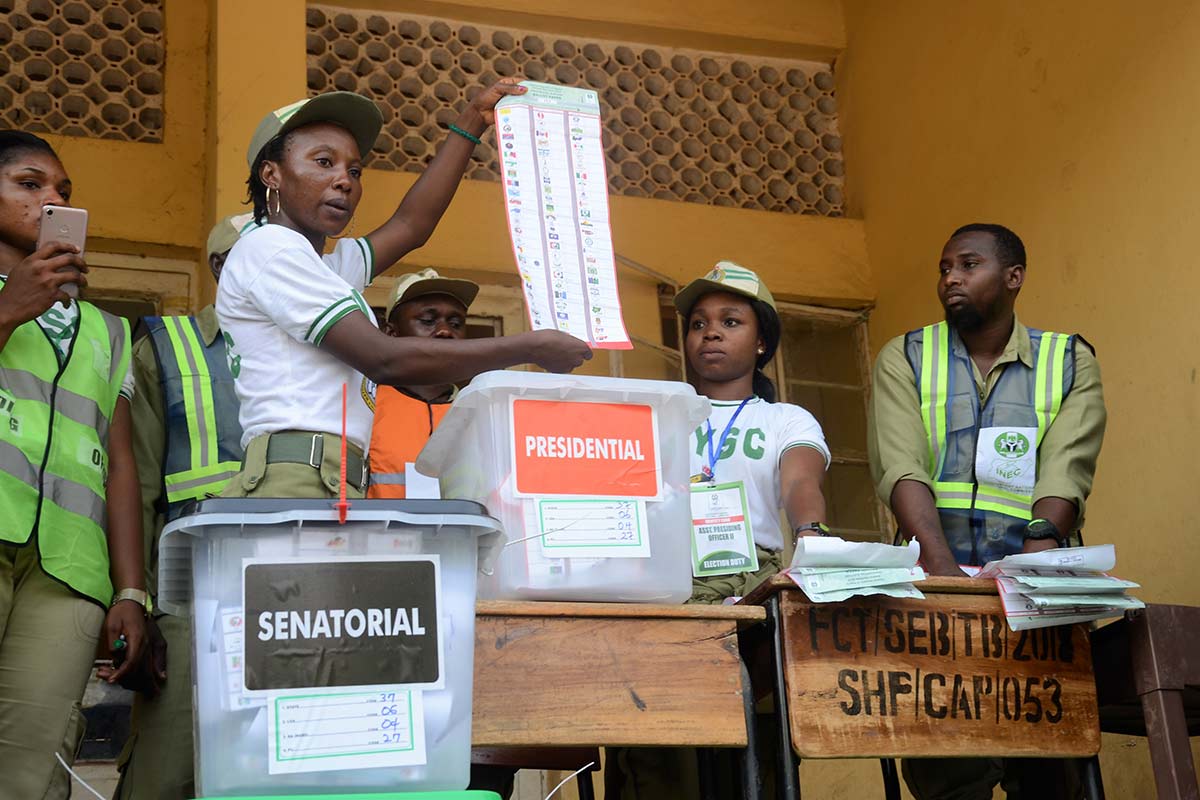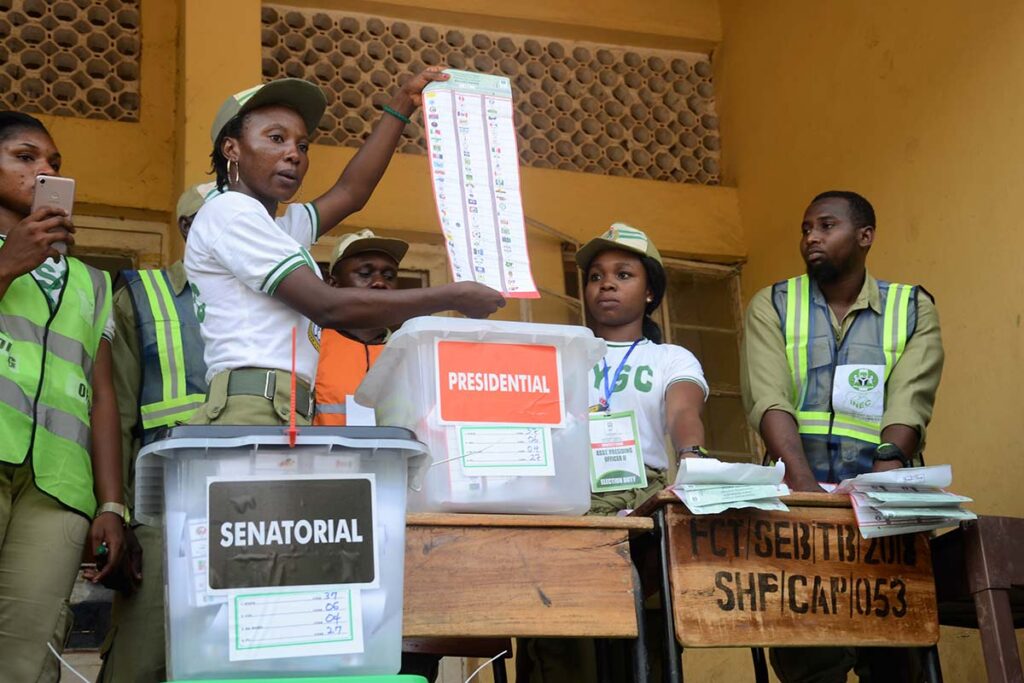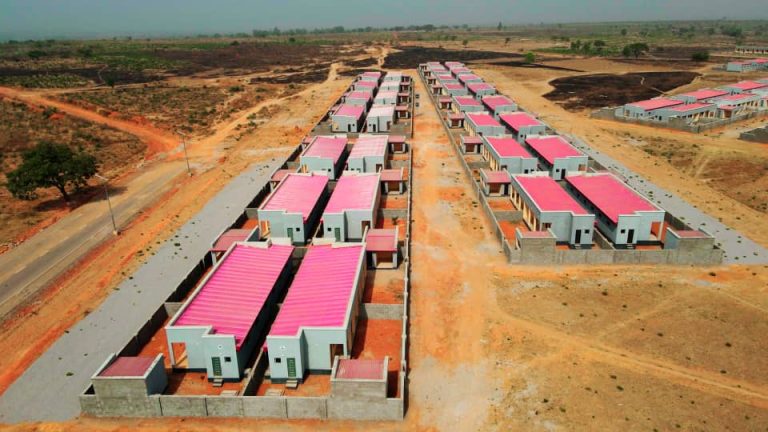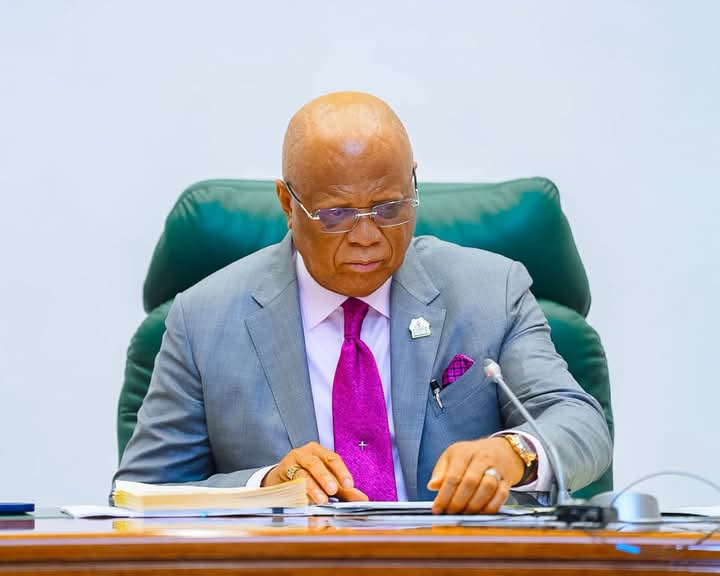

By Adaze Okeaya-inneh
The political climate in Nigeria, Africa’s largest economy appears to be in a state of false calm.
Barely two months ago, Nigeria conducted its 2023 General elections. For millions of Nigerians, the journey has been long and not without its challenges.
Despite 24 years of uninterrupted democracy, this oil-rich nation continues to suffer insecurity, economic instability, Kidnappings, terrorist attacks, high unemployment rates, epileptic electricity supply, fatal child maternity rates, poverty, unbridled corruption, and more recently currency (Naira) Redesign challenges.
But all that was poised to change with the 2023 Presidential elections. The majority of Nigerians, particularly the youths were full of hope that this election would be the game-changer in the future of Nigeria. Nigeria has one of the largest youth populations in the world, with 70% under 30 and 42% under 15 years of age. And many youths came out in droves to vote for the first time this 2023 election.
After widely contested elections, whose results are still in dispute, the electoral body awarded Ahmed Bola Tinubu, All Progressives Congress (APC) candidate, the presidential election winner.
Come May 29, 2023, when President-elect, Bola Tinubu is sworn in, he can expect support from over 50 percent of the members of the National Assembly, and the majority of the state governors who belong to his party, APC. This does not make for a partisan government, taking into consideration the excesses of the present administration as a result of this same situation.
However, the majority of Nigerians have strongly refused to accept the results of the Presidential election. The two main opposition parties have filed court suits against the Independent National Electoral Commission (INEC), calling for the election to be declared null and void, since the elections were not properly conducted, referring to widespread corrupt practices.
One of the aggrieved candidates, Peter Obi, (Labour Party) has already filed petitions against the President-elect, Bola Tinubu, and APC which include,
- Tinubu was not qualified to contest the election, based on age, certificate falsification, and criminal conviction by the United States of America.
- The election was invalid as a result of corrupt practices and non-compliance with the electoral act.
- That President-elect was not duly elected by a majority of the lawful votes cast.
The Presidential elect has a bullion van full of hurdles to fight. A former drug lord, Bola Tinubu, who claims to be in his 70s was involved in a 1993 Narcotics Trafficking & money laundering case and had to forfeit $460,000 in the United States of America. Already, Tinubu has the support of thugs, corrupt policemen, and politicians who are on his payroll.
His Vice-president-elect, Kasim Shettima equally has skeletons in his cupboard as well. There are allegations Shettima has strong ties to the insurgence terrorist group, Boko haram, which has continued to ravage northern Nigeria and is responsible for the 2014 kidnapping of over 200 schoolgirls, popularly referred to as “Chibok girls.”
Shettima is also accused of violating the Electoral Act by accepting nominations for two separate constituencies; the Vice Presidential and Borno Central senatorial candidacies. Thus, this disqualifies him as a running mate to APC, Bola Tinubu.
The majority of Nigerians trace the present decline in the nation to 2015 when the ruling party APC under Mohammadu Buhari, a former military dictator became the president. Was Nigeria perfect before 2015? No, the previous president Goodluck Jonathan didn’t fare better during his tenure and allowed a gross abuse of powers and corruption by government officials. Nigerians were so tired of Goodluck Jonathan’s government, most voted for Buhari despite warnings from those who knew and had experienced his past military rule.
History and Tribal Intolerance
History has come full circle. But this time, the decline in Nigeria is alarming. History would record Buhari’s administration as the worst Nigeria has ever experienced in every sphere you can think of. A setback, some say would take the giant of Africa decades to recover from. The APC leadership under President Buhari tore the fabric of the barely stitched unity of Nigeria. The fact that Nigeria has not become another Rwanda is a miracle in itself!
The 2023 elections revealed the deep roots of tribal and religious sentiments barely hidden behind friendships, acquaintances, and even family members. Ethnic tribalism has brought down lesser nations than Nigeria and thrown them into a colossal mess of unrivalled ethnic wars that they are yet to recover from. If in doubt, ask Rwanda where the root of its troubles began.
Despite best efforts, the seeds of disunity and rhetoric violence continue to be nurtured by APC, the ruling party.
There is silent anger slowly cooking all across the nation. Nigerians are understandably discontent with the results of the Presidential election. The majority of Nigerians believe the mandate of the people has been stolen by a gang of thieves headed by a former drug lord whose influence appears to reach near and far.
Even the Chief observer of the European Union Observation Mission to Nigeria, Barry Andrews declared that “it is difficult to point to progress in terms of democracy in Nigeria” when asked about the 2023 Nigerian General elections in a national Tv interview. Sadly, the United States of America, Ukraine, and China have sent congratulatory messages to the Presidential-elect, showing a remarkable lack of ignorance or is this the usual head-in-sand response of the international leaders similar to the 2020 EndSars?
A Symbol of Hope
For this giant of Africa, the 2023 elections were supposed to be the turning point of a new nation, coming out of the shackles of decades of corruption. Nigerians are hungry for law and order, integrity, and a leader that would move the nation forward, hand in hand with the people.
The hope for a new Nigeria which embodies competency, justice, and integrity, which to many Nigerians, Peter Obi, the Labour Party candidate represents.
Peter Obi is not a stranger to the legal system. He tested the judiciary system twice when he was a governor of Anambra state and was impeached and removed in 2006 and 2007. In spite of the inconsistencies in the legal system in the fragile democracy, Peter Obi went to court, stood his ground and the Supreme Court ruled in his favour.
Obi has a reputation as an advocate for transparency and integrity in governance. He has a huge following called “Obidents.” Obi, who was overlooked and underestimated, because his party was small and lacked structure went ahead to canvass supporters from all works of life and emerge as a strong third force in the political realm in less than nine months. It is no wonder original copies of results from various polling units reveal Labour Party was in the lead during the February 25 Presidential election, before manipulated results were later uploaded to the Independent Results Viewing Portal (IREV) showing inflated figures for the APC candidate.
The Task before the Judiciary
In view of these contending issues, it appears the court is the last hope for Nigerians. The President and the electoral body, INEC, have failed Nigerians. But will the judiciary restore the lost mandate?
The All Progressives Congress (APC) party has responded by filing a petition asking the Presidential Election Petition Court (PEPC) in Abuja, to dismiss the petition filed by the Labour Party’s candidate, Peter Obi. They claim it lacks merit and is frivolous.
Details of the initial petition filed by Peter Obi and the Labour Party ask the Presidential Election Petition Court to cancel the election due to discrepancies and compel INEC to conduct a new election in which Bola Tinubu and Shettima will not participate.
Notwithstanding the back and forth between the parties, Nigerians await the response of the court and the subsequent hearing dates to resolve the election outcomes.
There are mixed feelings about the effectiveness of the judiciary. A major reason for this is that during this present administration, the integrity of the judiciary has been seriously weakened; cases of corrupt judges and biased judgments have been unchecked.
These are compelling issues that must be addressed. What happens in the coming weeks and months will be significant for not only Nigeria as one of the largest democracies in Africa, but for its strategic position in Africa. If the citizens of a nation do not believe in the fairness and integrity of an electoral process, its democracy is questionable!
Adaze Okeaya-inneh is a Broadcast journalist and screenwriter in Lagos.




